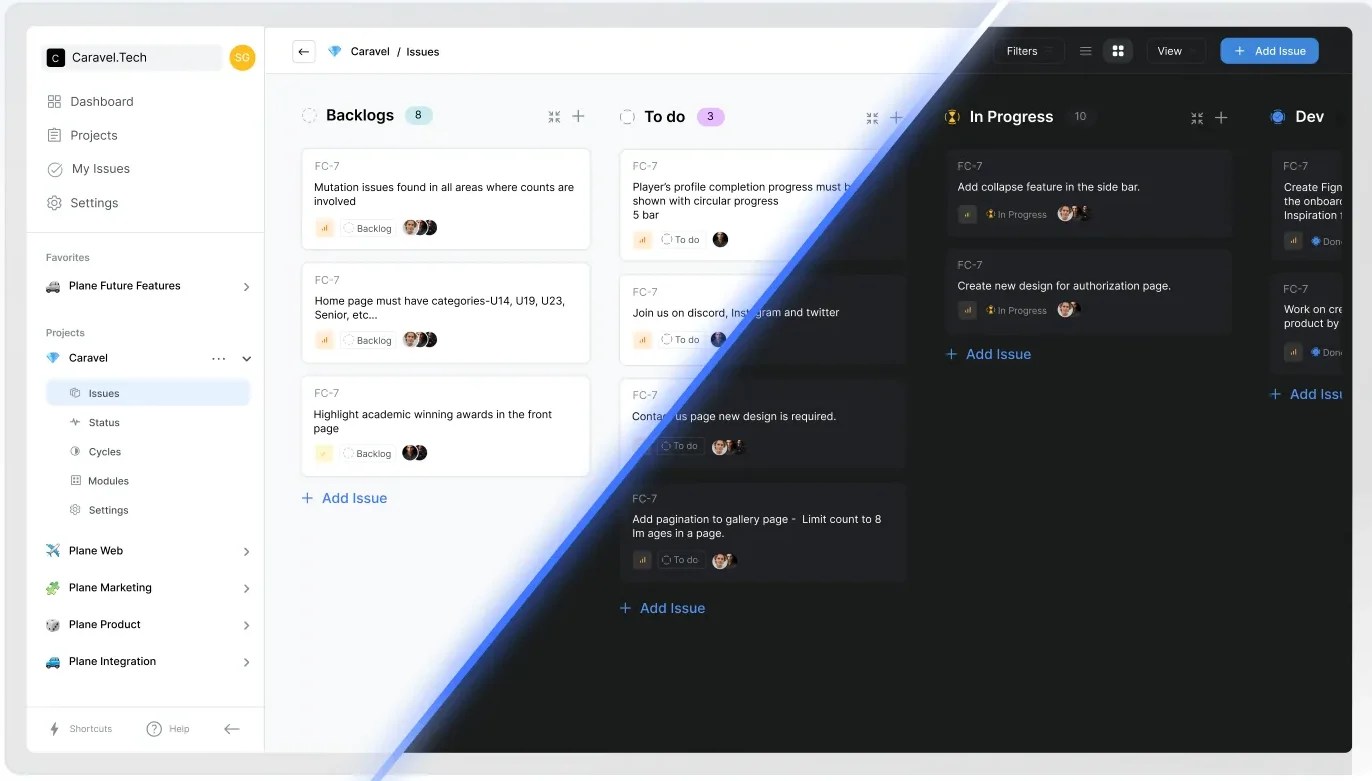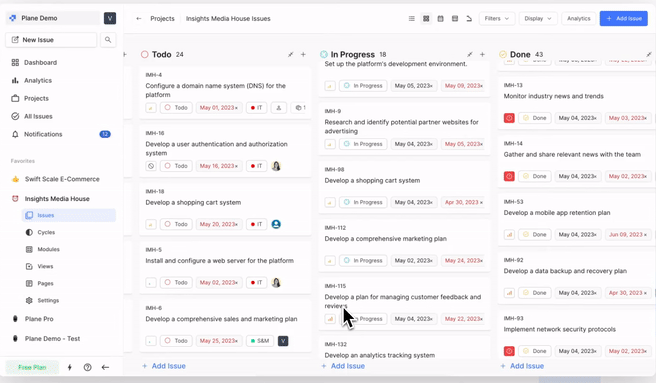Companies on the hunt for comprehensive project management and issue tracking tooling aren’t exactly short of options, with the likes of Atlassian’s Jira serving software development teams well for more than two decades.
Plenty of other players have entered the fray in the intervening years too, from Basecamp, Asana and Linear, to Monday.com and Jira’s sibling Trello. But they all have one common shortcoming — they are proprietary platforms that lack the flexibility and code transparency required for many modern enterprise settings.
And this is where Plane is looking to set itself apart from the established incumbents, with an open source product development and management platform for managing “issues, sprints, and product roadmaps with peace of mind,” the company proclaims.
Co-founder and CEO Vamsi Kurama says the number one advantage of being open source is privacy and security — companies can have complete control over their data, with full visibility into the inner-workings of the Plane platform.
“That our software can be hosted by our customers on their own infrastructure, with all the protections from the public internet, is a key driver for Plane’s adoption,” Kurama told TechCrunch. “Then there’s the transparency of code, our auditability and our pretty open conversations for what we are building, how and why — this assures customers of our stance and longevity.”

Plane sailing
Founded last November by brothers Vamsi and Vihar Kurama, the initial Plane GitHub repository actually preceded the formal launch by several months, though it was primarily an internal tool to help the creators deal with various pain-points they suffered when managing clients at a previous IT consulting company they worked at.
Through various iterations, Plane went live 12 months ago, and today it offers features such as issue planning and tracking, with the option to customize the project layout for list, Kanban and calendar views. It also supports sprint planning with “cycles” replete with insights on progress, and the ability to break down larger projects into modular chunks that can be assigned to specific teams or personnel.
The company has continued to iterate the product since its launch, recently introducing a new “quick add” option to allow developers to add an issue from just about anywhere on the platform.

Under the hood, Plane also supports bi-directional synchronization with GitHub Issues, with additional integration with Slack so users can easily transfer issues into Plane.
There’s no denying that it’s still early days in terms of being able to match the incumbents in the space, which is why Plane has now raised $4 million in a seed round funded entirely by OSS Capital, a venture capital (VC) firm that invests in startups that create commercial open source alternatives to established proprietary products, such as Notion, Airtable, Calendly, Unity and even Bloomberg Terminal.
The fresh cash injection will help Plane turbo-charge its product development in the coming year, including a new feature called Vault for engineering teams to store and share authentication “secrets” securely.
And while Plane is web-only today for its cloud users, the company is working to bring Mac, Windows, Android and iOS clients to market by the middle of next year.
As for monetization, Plane is currently iterating on various pricing plans, which will include managed services on its hosted cloud plan, as well as enterprise-grade features for those who choose to self-host.
“We are already talking to enterprises who are on the Community edition about a managed cloud version which, depending on demand, should come out in the later half of next year,” Kurama said.

Under license
It is worth noting that Plane has made its product available under a GNU Affero General Public License (AGPL) v3.0, which is known as “copyleft.” While this is very much a recognized open source license, it has certain restrictions which might not appeal to some commercial companies — the main issue being that any derivative projects must be released under the same terms of the original AGPL license.
This all ties in to another trend of late, whereby commercial open source companies have had to transition from “permissive” licenses such as Apache or MIT to copyleft licenses to protect themselves from others building businesses off the back of their software while contributing nothing back. Indeed, just this month Element moved the decentralized communication protocol Matrix from an Apache to an AGPL license, similar to what Grafana did two years previous.
“While some enterprises do have a strict no-AGPL policy, we foresee most enterprise prospects adopting Plane for its community contributions, compared to a more ‘closed’ license,” Kurama said. “We are a community-first project and are investing heavily into making contributions easy, which, in my experience, assures enterprises of a more secure and supported project.”
So in many ways, Plane is just future-proofing its business — it wants to encourage community participation while protecting its bottom line. And in its defense, the company is doing so from the get-go rather than performing a “bait and switch” through changing its license further down the road.
“For those who do want a more closed license, we will offer dual-licensing or custom licensing options in the future,” Kurama added.






























Comment